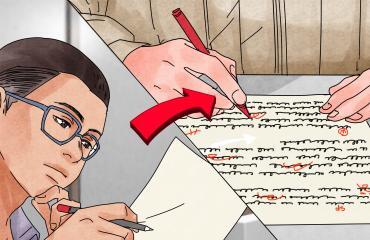
As a writer, do you balk at big projects? Do you wonder where to begin or have problems focusing on the mountain of work before you? If you are beginning a book and can’t figure out where to start, or if you are mid-story and have lost focus, reading through these pitfalls and how to avoid them will motivate you to take action and finally get your book written.
Stop Over-Researching
When writing on a specific topic, it is imperative to research that topic and know what you are talking about. It is counterproductive, however, to read and pick apart every book you can find on the topic by other writers in the field. What you want is your own fresh perspective, not your writing reflecting everyone else’s. Do your research to include in your work, but know when to pull back and add your own thoughts to the topic.
Stop Brain-Storming
While free-writing is a good way for some writers to clear their heads and turn over new ideas, it is not the way to start a book. Give your work focus early on by composing a brief thesis that reflects a perspective your reader will value. This will give your work a solid introduction while keeping your writing on track.
Stop Staring at a Blank Page
Before going on a road trip, smart drivers begin with a map and a clear idea of where they are headed and how they will get there. There may be some detours or delays along the way, but they remain focused on their goal. As a writer, beginning your story without a map will lead you nowhere. Even a loose outline of what you want to cover will keep your writing trained on the task at hand and will alleviate that daunting “staring at a blank page” feeling that can block writing before it begins.
Stop Being Orderly
While it may seem logical to start writing a book at Chapter One, this is actually one of the hardest places to start. Your first chapter sets the stage for the rest of the book and must support the entire story. Likewise, your last chapter must tie the story up into a perfect bow without any loose ends. By writing from your middle chapters first, or even building your story in both directions, you will have enough material to write a solid first and last chapter, perfectly framing your story.
Stop Losing Focus
This is one of the most difficult things to accomplish when writing at length. The sock drawer needs to be organized. Trash needs to go out. A hundred other things need to be done. Despite all this clawing at your attention, your project awaits. If you intend to write a quality piece, give it the attention it deserves, even if that means scheduling time in your day for it like any other job.
Stop Editing
Editing while you write will only hinder your progress. If you are being counterproductive, you will quickly become frustrated and may abandon the project altogether. Nothing has to be perfect in your first draft (or your second, or third). Once you have at least the bare bones of your story in place, then you can worry about smoothing out the wrinkles.
Writing a book is a massive task that can be daunting and frustrating, and make even a professional writer want to throw in the proverbial towel. By kicking these common bad habits, your best writing will happen more easily than you thought possible.



